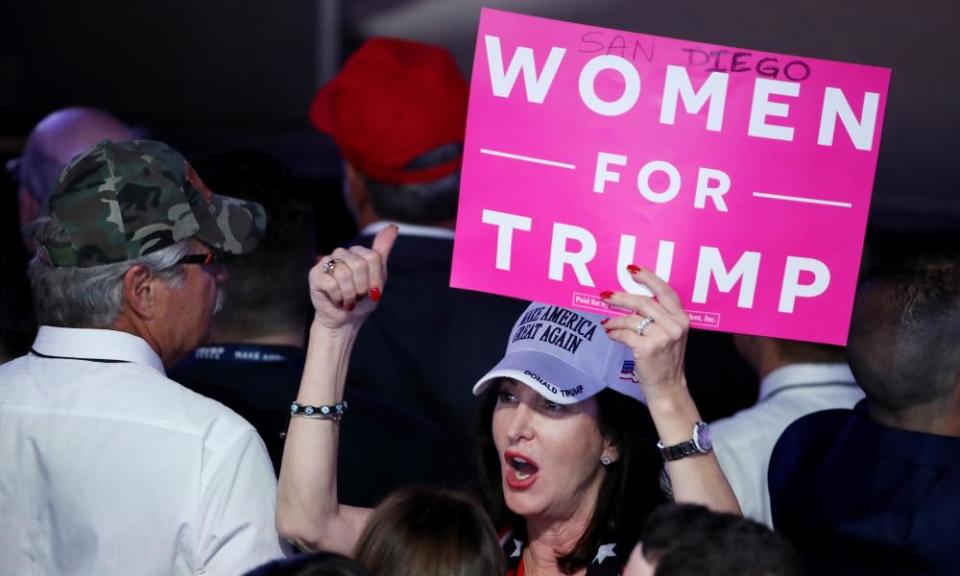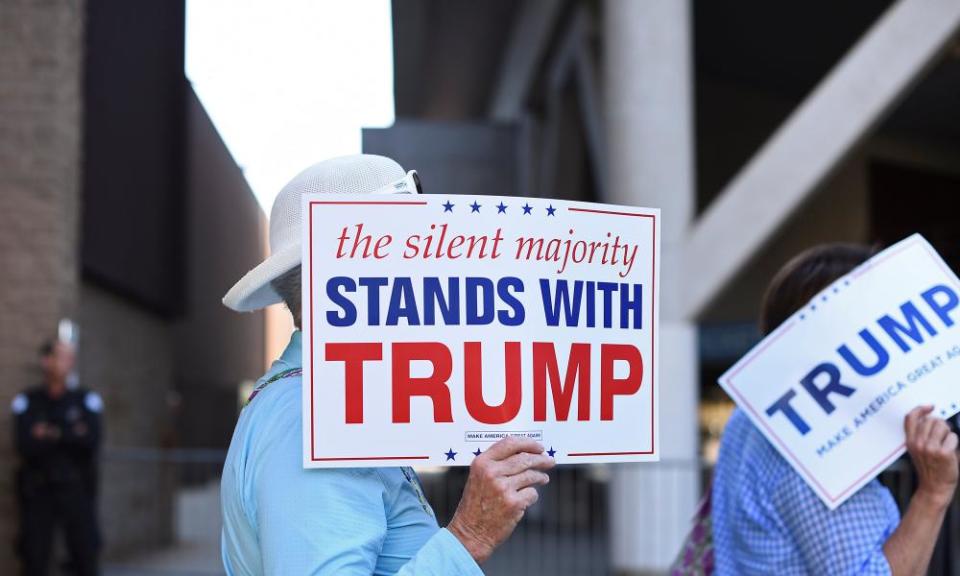Stop calling the Democratic party the 'party of women'

With the most high profile Democratic contenders for the 2020 presidential campaign all women – so far, Elizabeth Warren, Kamala Harris, Tulsi Gabbard, and Kirsten Gillibrand have all announced or strongly hinted their intentions to seek the nomination – the rhetoric of the Democratic party being the “party of women” has returned.
Coming off the historic 2018 midterm elections, with 102 women elected to the House of Representatives, 14 women elected to the Senate, and nine women elected governor, it appears the Democratic party is looking to ride the women’s wave all the way to the White House.
But there are difficulties in trying to claim a cohesive political ideology across 51% of the population. Say it with me now, I know you all know it by heart: a majority of white women voted for Donald Trump for president. Appeals to gender are cheap, and not always effective, as recent history proves.
A majority of white women voted for Donald Trump for president
Gillibrand, the most recent addition to the list of women who will run, has made her name on decidedly “pro-women” matters, focusing much of her attention on sexual harassment and sexual assault. In her announcement, she pointed to her ability to cross partisan lines on issues like reforming the procedure for handling sexual assault accusations in the military, but she also emphasized that she is running as a “mom”. (This seemed to be connected to her heralding her “empathy”, but studies have consistently shown that women start to vote more conservatively once they marry, and move further to the right still after having children. Motherhood may build empathy, but it also possibly limits its targets.)
But Gillibrand’s historical positions highlight the absurdity of trying to pin down what women as a group will stand for or believe in: Gillibrand has been in her career pro-gun and anti-gun, pro-immigration and anti-immigration, pro-corporate interests and ... well, she made headlines for courting Wall Street dollars before the announcement of her intention to run, so it’s unlikely the anti-corporate interest Gillibrand will emerge any time soon. None of these stances can be demonstrably shown to be specifically pro-woman or anti-woman. Each position was supported by a certain segment of the female population, and fought against by another segment of the female population.

This also raises another important question: which women count as women? Harris, during her long career as public prosecutor in California, took a tough approach on crime, despite growing public support for prison reform and the end to mass incarceration. As journalists like Melissa Gira Grant and Branko Marcetic have pointed out, Harris took a hard stance against sex workers throughout her career, as well as prosecuting women for their children’s truancy and fighting against a transgender prisoner’s request for gender reassignment.
When the media speculates, then, on Harris’s pro-woman career in the lead-up to the primaries, we might be able to assume sex workers, the trans community, prisoners and the family of prisoners are not considered to be women.
Gabbard has an even rockier history, having worked for an anti-LGBT organization in the past, supported the pro-life movement, and been anti-gay marriage. Like Gillibrand, as she took to the national stage, her positions moved leftward, and it’s unclear whether this was the result of a political awakening or a craven attempt at playing to the changing mood of Democratic voters. Possibly more damning, though, are her ties to the far right Hindu Nationalist movement in India, whose leader, Narendra Modi, has been connected to a massacre of Indian Muslims. This leaves lesbians, trans women, pro-choice women and Muslim women out of the “women” demographic.
When politicians talk about women as a whole, they mean “decent” women. White women. Middle class women.
There are those in politics and in the media who have not learned from the Hillary Clinton presidential campaign. In Clinton’s and her feminist friends’ appeals to women, they overlooked just how many women’s lives had been damaged by Clinton’s policies: women around the world where Clinton advocated for military intervention, poor women affected by her support for gutting social welfare programs, and so on. Their pleas for solidarity only served to highlight the fact that when politicians talk about women as a whole, they mean “decent” women. White women. Middle class women. Everyone who doesn’t fit that category might as well be invisible.
The question remains: what is the value of solidarity when it’s only coming from one side? We’ll hear the appeals for women’s support as the election draws ever nearer, but it won’t be the politicians themselves participating. Solidarity is something we, the women voters, must perform. Women politicians are free to ignore our rights and needs whenever it suits them.
Despite being scapegoated, ignored, politically thwarted, prosecuted, and shamed, we’re meant to put all of that aside for the good of the gender. But it’s time to have a real conversation about who women really are, what our interests are, and how politicians can help us live with dignity. It should not be a surprise if the most “pro-woman” candidate, whatever that means, actually turns out to be a man.

 Yahoo News
Yahoo News 